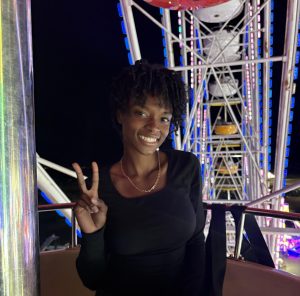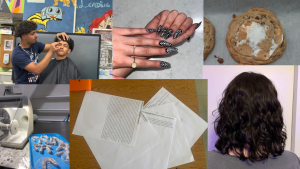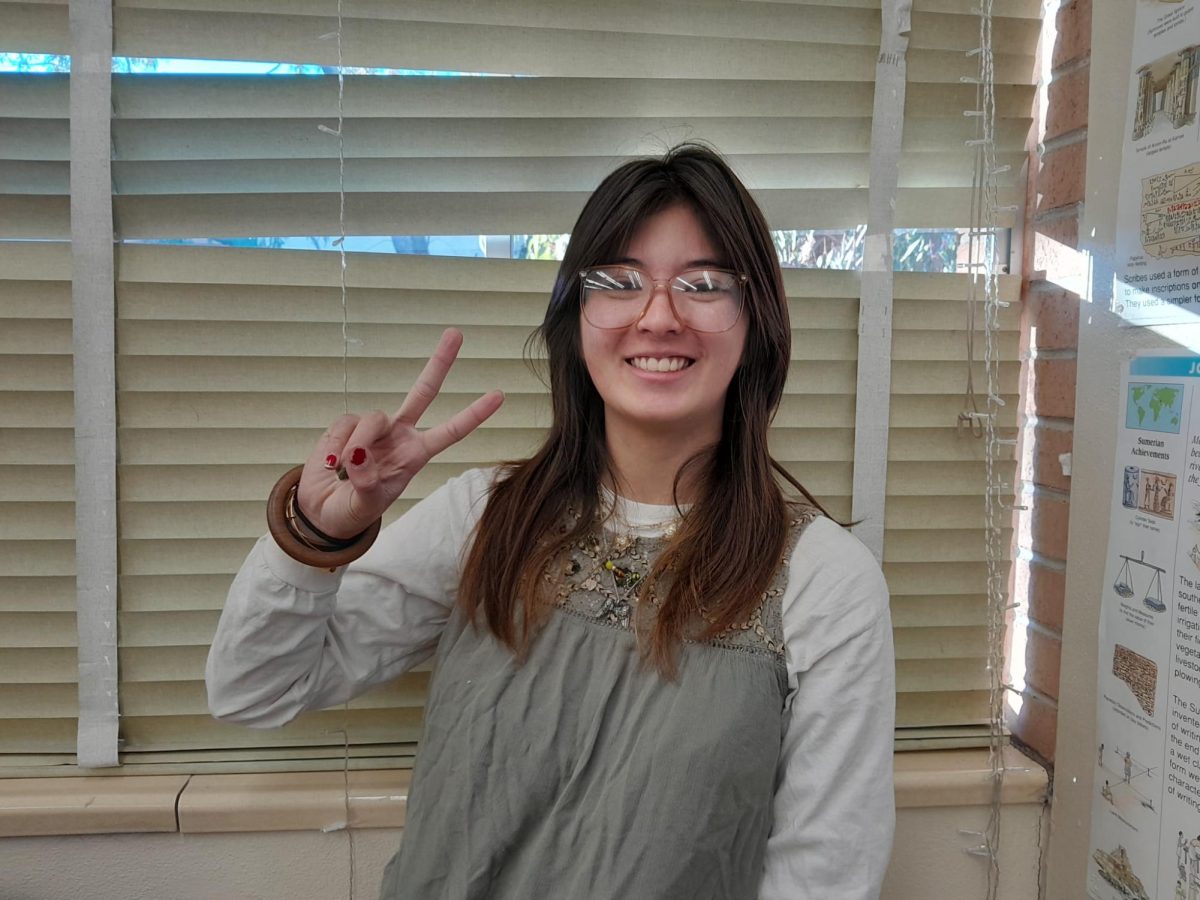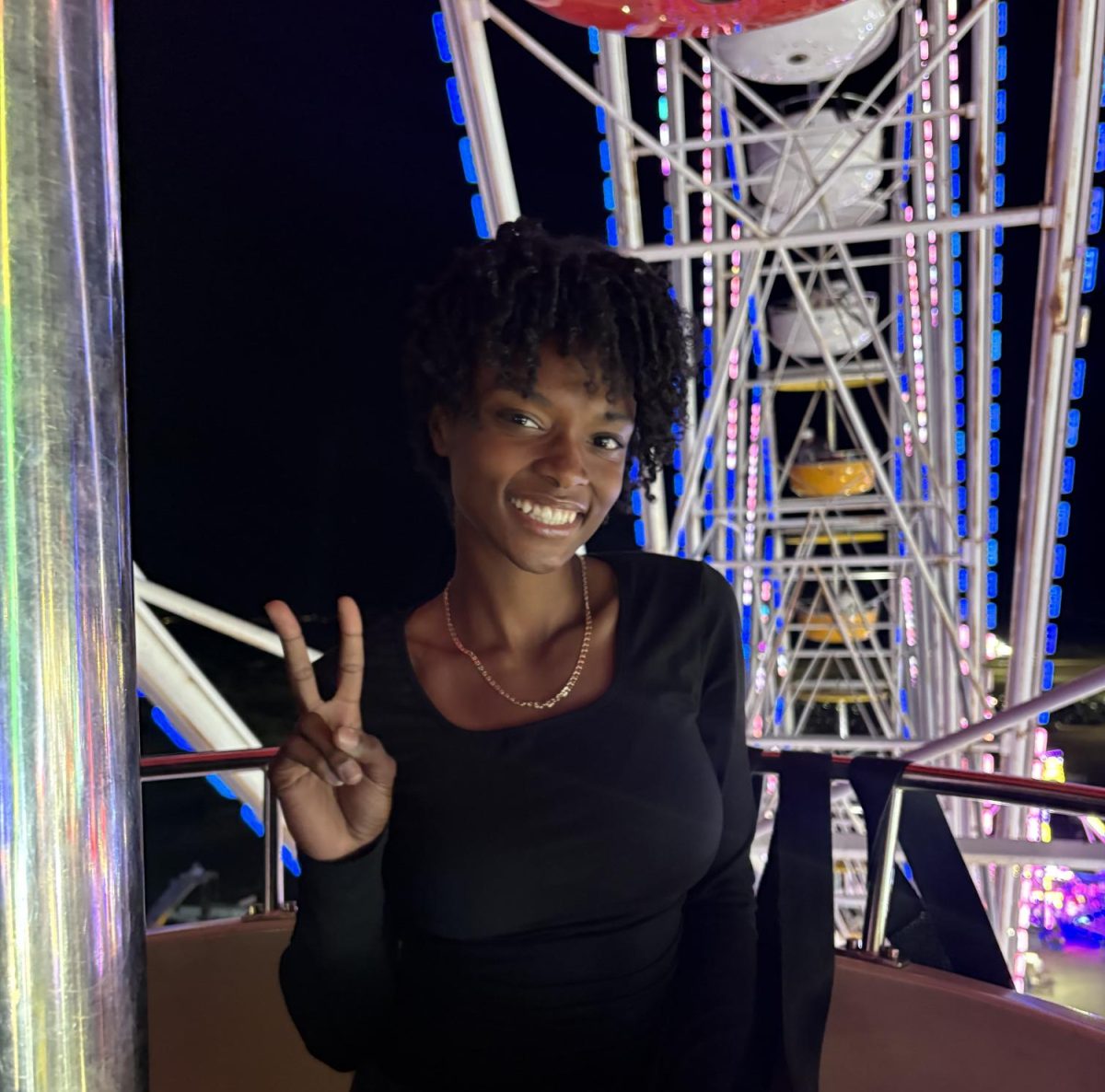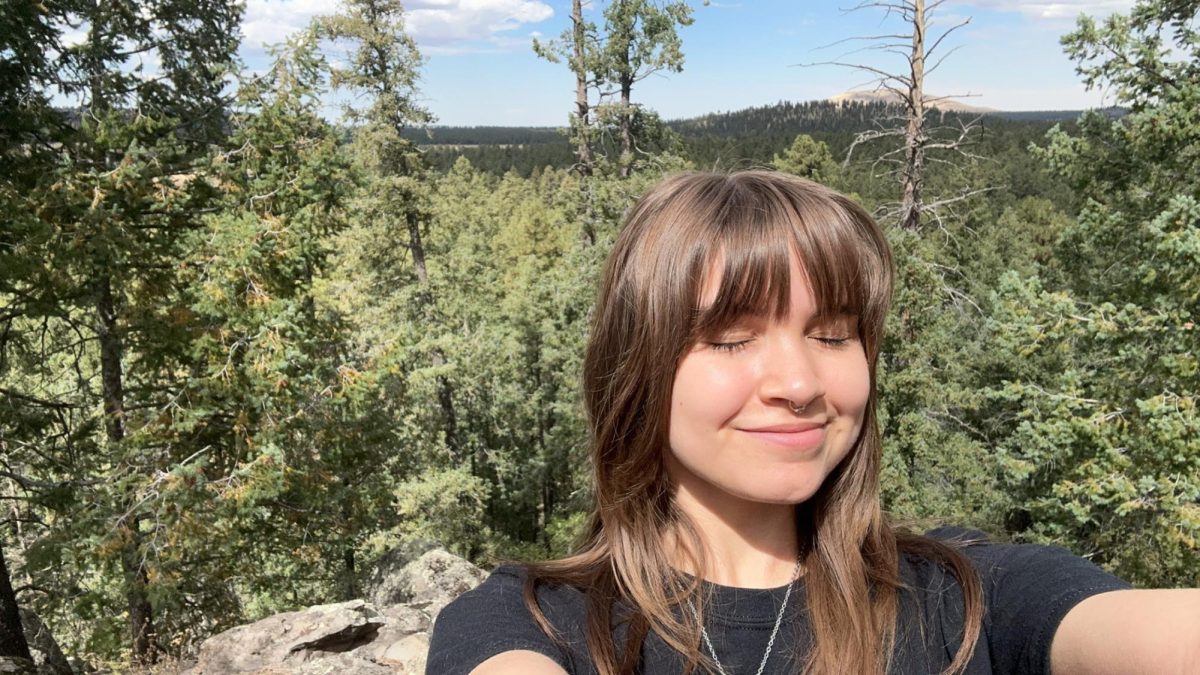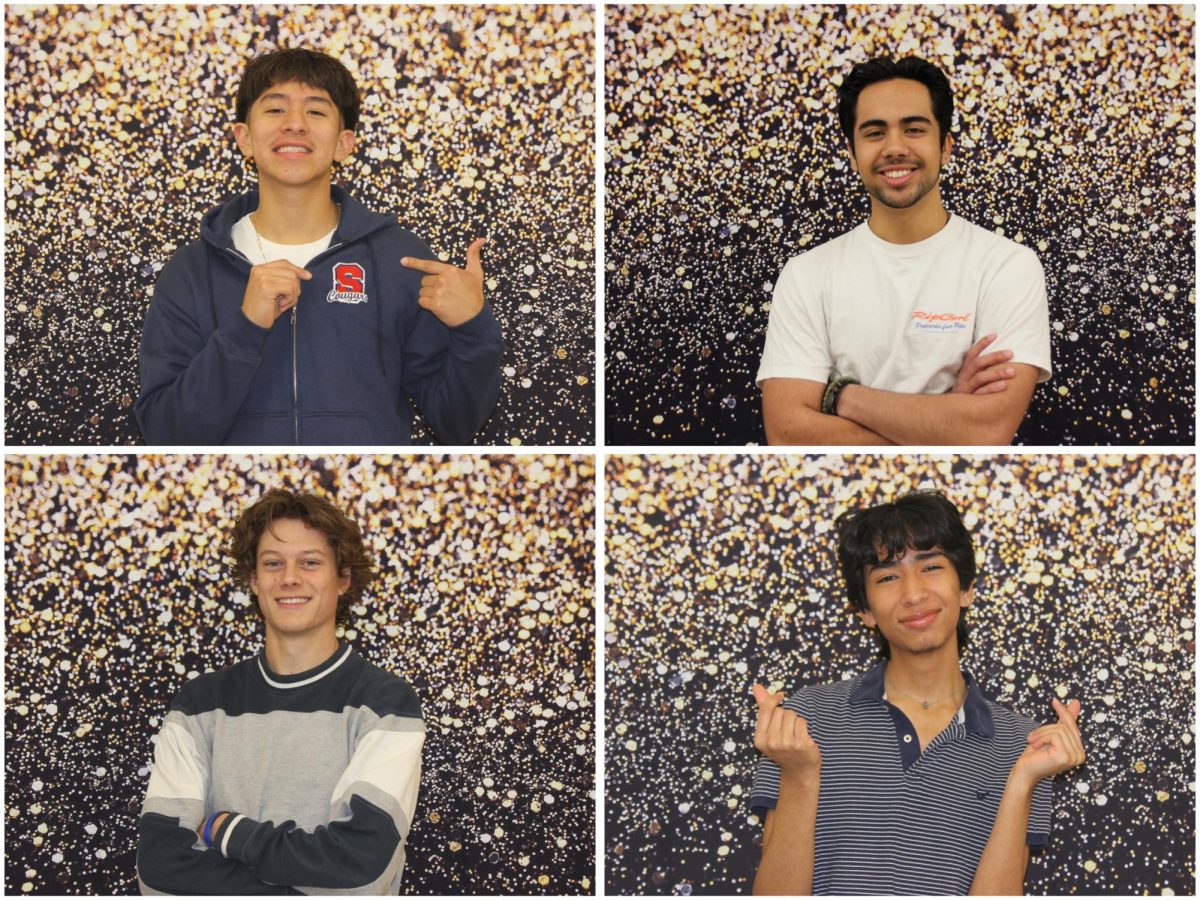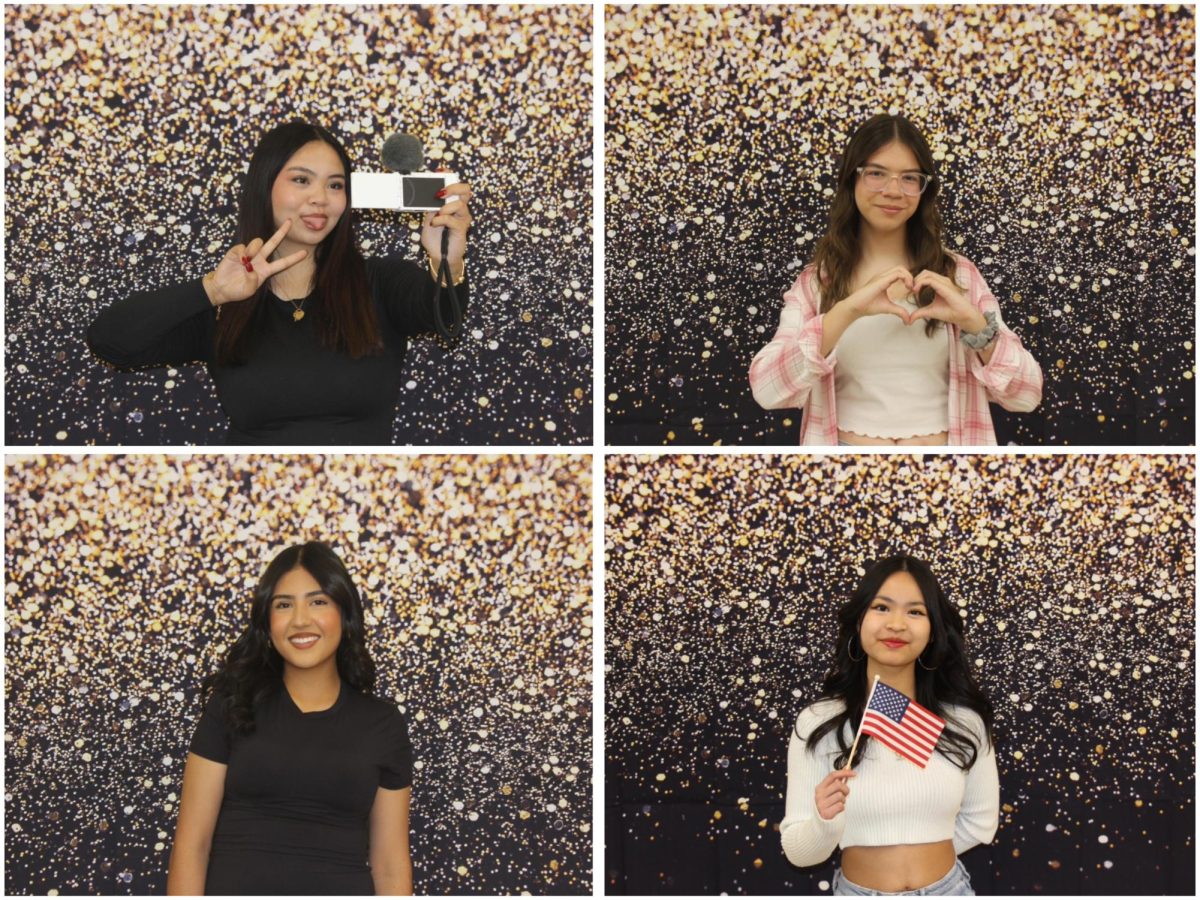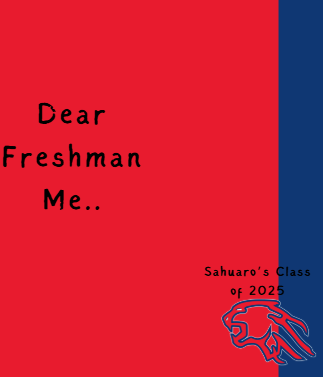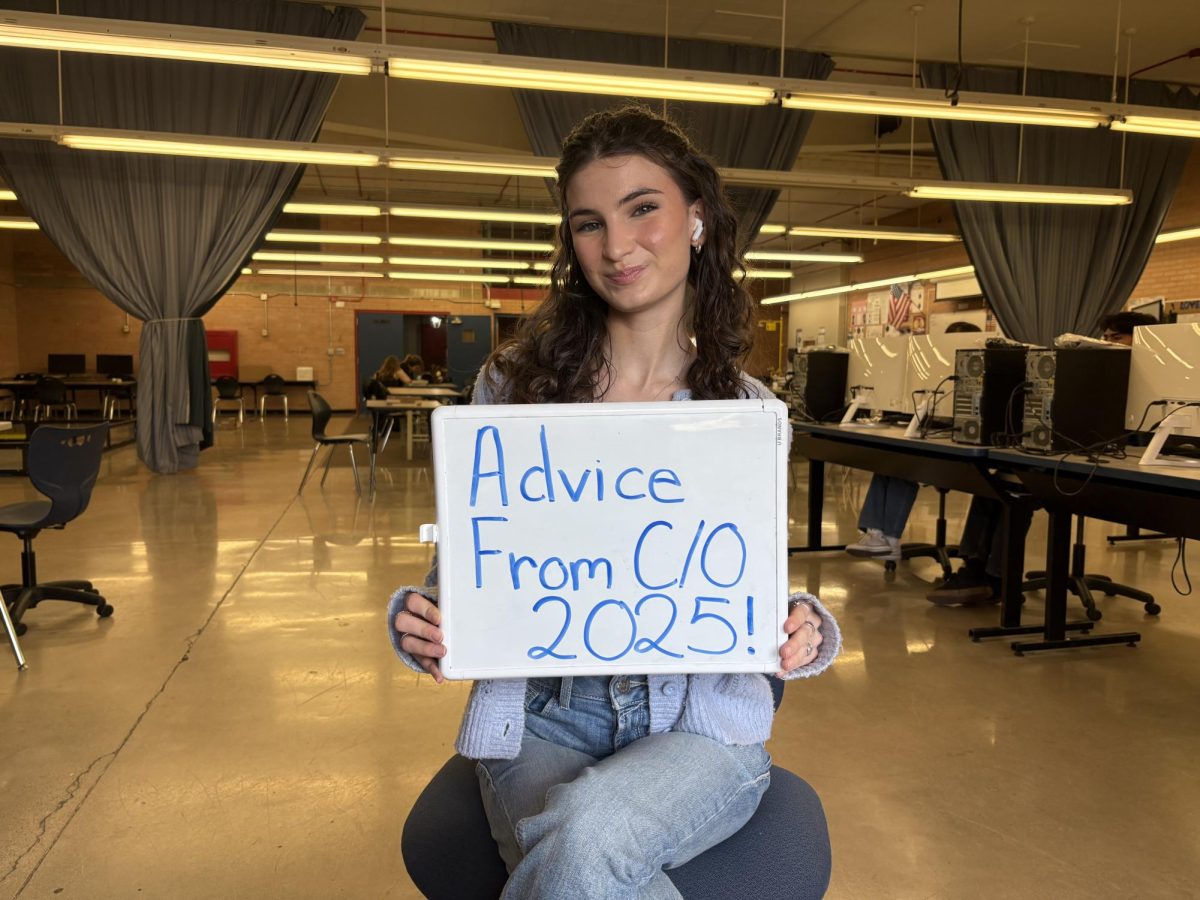Sophomore Hana McKnight wanted to write about her existence with embarrassment because of her life experiences and the sensitive feelings surrounding the emotion. Hana likes to draw and is known to be pretty artsy by her friends. Even though Hana isn’t too sure what the future holds, she plans to go to college and possibly pursue animal sciences.
As I dance wildly in the kitchen, lip-syncing to Queen’s Bohemian Rhapsody while procrastinating washing the dishes, my younger sister walks in and tells me “You are so embarrassing.” I look at her for a second and continue my procrastination because: I believe in being embarrassing.
Since I was born, my household’s two distinct cultures have clashed. My Japanese side (my mom), with a strong belief in respect, hard work, and tradition, and my American side (my dad), loves the chaotic freedom ingrained in American society. For a lot of my life, my mom had the final say on how to raise her children. A lot of my time was spent with my mom and her constant efforts to keep my Japanese alive while my sister and I were being bombarded by American culture on the daily. From only ever speaking to me in Japanese, hours of extra Japanese homework that led to many tears and violent arguments, to having fun cooking Japanese food, and celebrating Japanese holidays.
Thanks to my mother’s constant efforts in keeping the traditions of the stereotypical “Asian child must be perfect” attitude, I was an A student, and I was proud of it. But these expectations leaked into other parts of my life as well. I almost never participated in silly games at class parties, or did anything that could make me “look dumb” so I could maintain a veneer of the perfect (half) Asian child.
I was so afraid of falling short of my expectations, that in middle school it developed into an obsession. I cried when I got a B on an assignment. I had panic attacks when presenting in front of the class. I thought my personality and hobbies were stupid, so I buried them deep inside me. I was so afraid of being judged, or making mistakes, or being criticized. This led me to feel isolated. It felt like my friends didn’t really know the true me. I had convinced myself that fitting in was what I really wanted. To assimilate and get along with everyone; just like many people, I was conditioned to crave outside validation.
But slowly I realized it wasn’t what I wanted. I wasn’t happy. I spent so much time trying to make other people’s lives enjoyable that I forgot to enjoy it myself.
So, slowly, with the help of the people I love, I chipped away at my shell.
Who cares if I dress weird? It’s what I want to wear!
Who cares if my hobbies are dumb? It makes me happy!
Who cares if I make a little mistake? Literally no one.
I’m just being me and if people don’t like it, they can just suck it.
Yes, I still care about my grades.
Yes, I still get embarrassed when I trip in the hallway.
And yes, I’m still bad at meeting new people.
But those moments don’t linger if they used to. I am kinder to myself, and I am happier because of it.
I’ve seen tacky posters in classrooms millions of times that say, “Be yourself,” with rainbows and an occasional kitten, but I believe it’s true. Being myself has brought me joy. Some people won’t like you, and that’s okay. Some people were simply not meant to be together, that’s all.
So the next time my sister tells me “You’re embarrassing,” I just shrug and tell her that that’s not my problem, because I’m happy, and I don’t owe it to anyone to change that.

